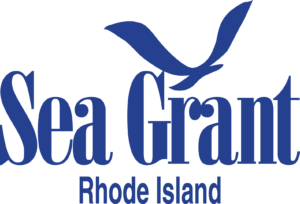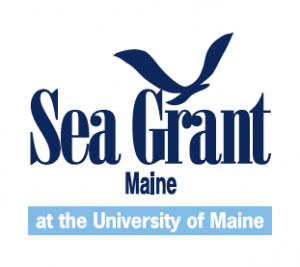Draft regulations to protect right whales: opportunities to comment
The National Marine Fisheries Service (NMFS) is currently in the process of developing new regulations to protect the North Atlantic right whale (right whale). The recent court decision in Center for Biological Diversity v. Ross, also known as the “DC Case,” requires NMFS to finalize new regulations by May 31, 2021. If NMFS does not finalize regulations by that time, lobster fishing will have to immediately shut down. As part of the process of developing new regulations, the public has the opportunity to voice their thoughts and opinions.
Below, you’ll find more information on opportunities to submit public comments, the regulatory process, and background information explaining why new federal regulations are being developed.
Opportunities for Public Participation
There are several ways for the public to offer their thoughts, suggestions, and opinions as NMFS develops the new regulations.
Submit your written comments on the regulations and/or the draft environmental impact statement through regulations.gov by clicking the “Comment Now!” button. NMFS will be accepting comments through March 1, 2021.
NMFS will also host a series of regionally focused meetings during which oral comments will be accepted. The first set of meetings will primarily be informational. During the second set of meetings, the public will be invited to ask questions and offer oral comments on the proposed regulations.
Rhode Island, Southern Massachusetts, LMA3
Informational Session: January 12, 2021, 6:30-8:30 pm, register here
Public Hearing: February 16, 2021, 6:30-8:30 pm, register here
Massachusetts (Outer Cape and LMA1) and New Hampshire
Informational Session: January 13, 2021, 6:30-8:30 pm, register here
Public Hearing: February 17, 2021, 6:30-8:30 pm, register here
Southern Maine
Informational Session: January 19, 2021, 6:30-8:30 pm, register here
Public Hearing: February 23, 2021, 6:30-8:30 pm, register here
Northern Maine
Informational Session: January 20, 2021, 6:30-8:30 pm, register here
Public Hearing: February 24, 2021, 6:30-8:30 pm, register here
You can find more information at http://fisheries.noaa.gov/ALWTRP.
The New England Fishery Management Council (NEFMC) and the Atlantic States Marine Fisheries Commission (ASMFC) will discuss the regulations at their upcoming meetings on January 26-28, 2021 (register here), and February 2-4, 2021 (register here), respectively. It is recommended that anyone who comments at these meetings also submits their comments to NMFS to ensure NMFS receives them.
The Regulatory Process
The process of developing new federal regulations can be broken down into five steps, which are described below along with the status of the right whale rulemaking and the opportunities for public comment. With the publication of the proposed ruling on December 31, 2020, the process entered step three.
1. Advance Notice of Proposed Rulemaking
What happens?
A federal agency publishes an advance notice of proposed rulemaking that describes and explains why it is developing the regulation. The agency uses that time to gather information and suggestions from the public and assess how controversial the proposed regulation will be.
NMFS right whale process
In August 2019, NMFS issued an advance notice of proposed rulemaking to develop new regulations to protect the right whale by reducing entanglement in pot/trap fishing gear. Meetings were held across coastal New England throughout August 2019, during which NMFS asked the public for their suggestions on how to achieve this.
2. Development of Proposed Regulation
What happens?
The agency develops the draft text of the regulation and sends it to the Office of Information and Regulatory Affairs (OIRA), which checks for consistency with federal laws and policies before approving or rejecting the regulation.
NMFS right whale process
After receiving and considering public input from the August 2019 meetings, NMFS developed a draft text of the regulation. This draft was sent to OIRA on July 8, 2020. OIRA approved the regulations on December 21, 2020.
3. Publication of Proposed Regulation and Public Comment
What happens?
Once approved by OIRA, the proposed regulation is published in the official journal of the United States, the Federal Register, giving notice to the public and opening the public comment period.
NMFS right whale process
NMFS published the proposed regulations on December 31, 2020. NMFS has allowed 60 days for the public comment period.
What you can do
-
- Submit written comments on the regulations and/or the draft environmental impact statement through regulations.gov by March 1, 2021.
- Submit oral comments at a regional public hearing meeting hosted by NMFS.
- Discuss the regulations at the New England Fishery Management Council (NEFMC) meeting on January 26-28, 2021 or the Atlantic States Marine Fisheries Commission (ASMFC) meeting on February 2-4, 2021. It is recommended that anyone who comments at these meetings also submits their comments to NMFS to ensure NMFS receives them.
4. Development of Final Regulation
What happens?
The agency analyzes and prepares responses to the significant comments received from the public comment period and develops a final regulation. Once the final regulation has been developed, it is reviewed and approved by OIRA.
NMFS right whale process
NMFS will develop the final regulations after the public comment period has closed. Again, the public, typically through an organization, will have a chance to request meetings with OIRA.
What you can do
If you are a member of an organization, you can encourage that organization to meet with OIRA. Organizations can request meetings by going to https://www.reginfo.gov/public/do/eo/neweomeeting and entering RIN “0648-BJ09.”
5. Publication of Final Regulation
What happens?
The final regulation is published in the Federal Register, which gives public notice that the rulemaking is complete. The agency publishes responses to significant public comments made during the public comment period and explains how the comments were considered in developing the final regulation. The final regulation is generally published at least 30 days before the regulation comes into effect.
NMFS right whale process
In order to comply with the decision in Center for Biological Diversity v. Ross, the final regulation must be published and come into effect by May 31, 2021.
Background
There are less than 400 right whales left in the Atlantic Ocean, and the biggest threats to their survival are vessel strikes and entanglement in fishing gear, particularly vertical line gear such as gillnets and traps/pots. Right whales are protected by two federal laws: the Endangered Species Act (ESA) and the Marine Mammal Protection Act (MMPA).
Endangered Species Act
Under the ESA, if an endangered species is likely to be killed or harmed by an activity (known as a “taking”), an agency must obtain an incidental take statement (ITS). Without an ITS, killing or harming an endangered species is illegal. In order to obtain an ITS, several criteria must be met, including compliance with the MMPA.
Marine Mammal Protection Act
The MMPA requires that an incidental taking have no more than a negligible impact on the species.
After considering new information about how lobster fishing affects right whales, NMFS reauthorized lobster fishing in the Atlantic Ocean in 2014; however, the agency did not obtain an ITS even though it anticipated takings of right whales. Because the population of right whales is so small and continues to decline, the death of even one whale is significant, meaning lobster fishing is expected to have more than a negligible impact on right whales and would not be in compliance with the MMPA.
Environmental groups sued NMFS (Center for Biological Diversity v. Ross) for reauthorizing lobster fishing without sufficient protections for the North Atlantic right whale, claiming that reauthorizing lobster fishing without the required ITS was illegal. The court agreed.
In order to obtain an ITS and comply with the court decision, NMFS is in the process of developing new regulations that will reduce right whale entanglement in fishing gear. States were encouraged to submit their own proposals for regulatory changes in advance of federal rulemaking (view state-specific proposals). NMFS will take into consideration state proposals and public comment before finalizing new regulations. If NMFS does not finalize the regulation by May 31, 2021, commercial lobster fishing must halt until NMFS finishes the regulation.
This information was developed in partnership with the Marine Affairs Institute at Roger Williams University School of Law/Rhode Island Sea Grant Legal Program. For a full list of references and for additional information on this topic, see this document.
 |
 |
 |
